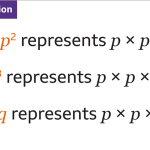Grasping the Fundamental Principles
As we begin this journey into accounting, it’s vital first to understand the core principles that underpin this field. Accounting, at its core, is about recording financial transactions, analyzing financial data, and presenting it in a way that informs decisions. These principles help ensure consistency, reliability, and comparability of financial information across different businesses.
Economic Entity Assumption
This principle holds that business transactions are separate from the personal transactions of the business owners. When you record transactions, it’s essential to keep business and personal finances distinct. Ensuring that business operations aren’t intertwined with personal affairs aids in producing clearer financial reports.
Monetary Unit Assumption
In accounting, we record all business transactions in terms of money. This principle suggests that money serves as a common unit of measurement, allowing for easy comparison and analysis of transactions. Moreover, it assumes the purchasing power of money remains constant over time.
Staying Consistent and Reliable
Consistency and reliability are the backbones of any robust accounting system. Here are two crucial principles:
Consistency Principle
This principle requires businesses to consistently apply the same accounting methods over time. This consistency enables stakeholders to make meaningful comparisons of financial information across different periods.
Historical Cost Principle
Business transactions are recorded at their original cost. This principle provides a concrete and reliable basis for recording transactions, as the original cost does not change over time.
Understanding Revenue and Expense Recognition
Two fundamental principles govern the recognition of revenues and expenses in accounting:
Revenue Recognition Principle
This principle states that companies should only record revenue when they have completed the earnings process. This article on our site discusses in depth how revenue recognition impacts the economic trends.
Matching Principle
The matching principle necessitates businesses to report an expense at the same time as the revenue that it helped to earn. By matching expenses with revenue, financial statements provide a more balanced view of a company’s financial health.
Relying on Professionals
If you’re a business student, you’re not expected to master every intricate detail of these principles overnight. Instead, the goal is to have a firm grasp of these fundamental concepts as you continue to learn and grow in this field.
For more complex accounting needs, companies often rely on professional accounting firms in Birmingham to ensure their financial affairs adhere to these principles.
Final Thoughts
Accounting principles are the bedrock of sound financial management and decision-making in business. Grasping these principles will not only provide business students with a solid foundation for their studies but will also prove invaluable in their future careers.
In the same way that we comprehend these principles to better navigate business finance, we also learn other concepts to improve different aspects of our lives. For instance, understanding the principles of effective study habits can greatly enhance our ability to learn and retain information.
Remember, mastering the basics is the first step to achieving excellence in any field, and accounting is no exception. Keep learning, keep growing, and keep mastering these principles as you advance in your journey as a business student.


